With this year’s Academy Awards airing this coming Sunday, we’re taking it upon ourselves to create our own list of movies released over the past year that are primed to have the greatest and longest lasting cultural impacts, regardless of whether they’re set to win a golden statuette.
For as we explained in Part I, the movies we truly treasure are the ones that leave a mark of some kind – that connect with us on a personal level, or reverberate within the expanse of our shared experiences. Whether they offer a memorably grand spectacle or prefer to keep things grounded, the movies we love most are the ones we find most rewarding.
As we continue our countdown – which is in no particular order – let us know your thoughts on the movies we’ve picked, and which ones you’re expecting to see round out the list lest we suffer the wrath of the Almighty.
10) INSIDE OUT (Pixar/Disney)
In what many have considered a strong comeback for Pixar after ho-hum receptions to “Cars 2,” “Brave,” and “Monsters University,” “Inside Out” serves as a reminder of the incredible creativity and talent the company’s filmmakers are capable of showing off. Charm and wit are offered in abundance, along with a level of sensitivity, perception, and heart that we’re so used to getting from the studio that brought us the likes of “Finding Nemo,” “Up,” and “Toy Story 3.” If we’re honest with ourselves, we’ve been spoiled by such delightful triumphs of storytelling. But it’s nice to feel spoiled again.
Perhaps the movie’s greatest accomplishment (among many) is how it’s able to explain the development of human emotions in a way that’s effortlessly understandable to children. As we grow from being toddlers to adolescents, and from adolescents to teenagers, life throws us curve balls that force us to change who we are and how we handle our feelings. Through the eyes of a young girl, we’re shown how feelings of joy, anger, disgust, fear, and sadness are able to form any number of combinations simultaneously, and that each of these combinations serves a purpose. Chief among these, the movie suggests, is being able to empathize with others, and knowing that others can empathize with you. Arguably no other Pixar effort does more to bridge the gap between generations than this one – and that says a lot.
9) STRAIGHT OUTTA COMPTON (Legendary Pictures/New Line Cinema)
What was expected to be a movie bogged down by controversy (that is, beyond its lack of recognition by Oscar) stunned the movie world by being one of the most critically and commercially successful films of the year. Lauded by reviewers for its deft storytelling and impressive young cast, director F. Gary Gray’s biopic about the rise and disbanding of 1980’s rap group NWA earned the eighth-highest opening weekend box office for an R-rated movie ever. And the reason for this was it was able to attract a widely diverse audience.
Indeed, such diversity was a reminder that not only does rap as a music genre anymore appeal to an array of demographics, but that the people the story is based on played a huge role in making that the case. As author Shea Serrano points out in “The Rap Book,” which catalogues rap’s most influential albums, “Straight Outta Compton” was not the first gangsta rap record. But it was the one that fully bent the trajectory toward reporting the dejection and desolation of the inner cities of the country. And that meant it was no longer just for those populations anymore.” The film, like the album, withholds a lot of anger. But also like the album, the film is an attempt to channel that anger through artistic expression. Most importantly, Gray’s film succeeds in putting a fine point on exactly where that anger is coming from, and why it needs to be dealt with carefully and through nonviolent means. This movie puts its money where its mouth is by simply being what it is – a movie. And it could very well be one that people rally around for years to come.
8) ROOM (Element Pictures/Film4)
Faithfully adapted from the book of the same name by original author Emma Donoghue, director Lenny Abrahamson helms a story of perseverance and hope that grabs you by the heart and squeezes like a vice. And just when you think you can’t take anymore, you’re gifted with feelings of relief, love, and overwhelming compassion. Although the movie has a sentimentally lucid and impressing focus on the relationship between a mother and her young son as they escape a five-year Hell inside a deviant’s one room prison, it’s the son who ultimately holds full ownership of the story. More specifically, we become privy to the growth of the young boy as his mind, body, and heart cope with the transition between two completely different realities: that of the room, and that of …everywhere else.
If you’re reflexively recalling Plato’s cave, then you already have a solid grasp of the film’s progression from ignorance to enlightenment. (Indeed, there are some not-so-subtle allusions to the parable, including a scene in the room that features shadow puppets.) However, the true value of “Room” lies in two places – the utterly remarkable performances of Brie Larson and Jacob Tremblay, and the provocative insinuations made by various aspects within the two separate environments. Long story short, there is plenty of fodder for anyone looking to eat up cultural and political commentary. And it’s the nimble integration of that commentary into such a primally compelling story that really makes “Room” stand out. Agendas notwithstanding, you won’t walk away from this one unaffected.
7) BRIDGE OF SPIES (Dreamworks)
Consensus of opinion seems to be that “Bridge of Spies” is Steven Spielberg’s best film since 2005’s “Munich.” Or in other words, it signifies a return to form for one of Hollywood’s all-time greatest storytellers. Set during the height of the Cold War when Berlin had just decided to divide itself with one of the most famous walls in Western history, we find real-life hero James Donovan (Tom Hanks) tasked with providing ample legal counsel for confirmed Russian spy Rudolf Abel (Best Supporting Actor nominee Mark Rylance). Though Abel is predictably convicted of war crimes, Donovan resumes his services by becoming the lead negotiator in a prisoner/spy exchange between the U.S. and Russia. The back-and-forth that follows serves to both exemplify and justify America’s moral ideology.
Without any doubt, this is Spielberg’s most politically charged movie to date. That isn’t to say it leans to either the left or the right, but that it’s a flagrant appeal to the values that our country’s official rhetoric has been based upon since its inception. One such value is the importance – nay, necessity of due process, and how it epitomizes our value of the rights of the individual, domestic or foreign, which we claim is what most separates us from our enemies. Likewise, the film claims if that execution isn’t taken one-hundred percent seriously, then it’s as if it weren’t executed at all. The Constitution is our cause for making a better world, you could say. And our enemies have causes of their own. The thesis of the film breaks down into a rhetorical question that addresses this difference head on: Will we stand by our cause less resolutely than our enemies stand by theirs?
6) EX MACHINA (Film4/Universal Pictures)
There have been more movies than usual lately that deal with the subject of artificial intelligence (A.I.). But the most intelligent among them has been writer/director Alex Garland’s “Ex Machina” about a genius creating the first A.I. equal in potential to a human’s. Said genius selects Caleb, a lower level employee in his tech empire, to accompany him to a secluded home in a scenic wilderness, where he is entrusted with testing a prototype A.I. to determine whether it measures up. That A.I., named Ava, begins to form a bond with Caleb, and reveals that it’s been held captive since its creation. Hesitant but willing, Caleb conspires with Ava to secure its freedom despite the genius’ insistence that it’s not yet improved enough to introduce to the world.
I took the liberty of calling Ava “it,” but throughout the film you’ll notice how Caleb and his boss only ever say “she.” This is not an accident. As a fully conscious being aware of its mortality and capable of forming its own original thoughts and identity, Ava’s captivity and undervaluation are meant as an allegory for patriarchal oppression. To wit, the scientific question driving the two male characters is whether or not Ava (a “she”) is truly “intelligent” – as in, whether she could pass for human. Caleb’s interviews with Ava function as an amped-up Turing test to determine this. But as Ava eventually expresses, much as critics of the Turing test do, “intelligence” is a subtle and elusive concept that cannot be measured or confirmed by any test. That Ava identifies herself as equal to humankind (specifically womankind) is enough, needing no confirmation from others about the matter (much less men). On this front, “Ex Machina” is a landmark addition to the sci-fi genre, and yet another significant show of conscientiousness from a male filmmaker of feminist sentiment (see also: “Room,” and “Mad Max: Fury Road”).
—————————————-
The five movies that round out this prestigious list are as diverse as any of the others already cited. Some were immensely successful at the box office, some were the darlings of critics big and small, and some were fortunate enough to be both. But what these last five all have in common is the same thing they share with the other ten movies – they affect you. They stick to your psyche like a bumper sticker you can’t peel off. And even if you were somehow able to shake any one of them from your memory after seeing them, their potential effects on our collective psyche could very well be unavoidable.
And that’s what this list is about. These aren’t the most entertaining movies of the past year, or even necessarily the best. But they could be the ones you keep hearing people talk about for years to come. And they could even help shape how movies like them are made going forward. These movies gave themselves the chance to influence how America watches movies that haven’t even been thought of yet. And that’s all any film wants, really.
So here they are, the Final Five, in no particular order. Hopefully if you haven’t seen them already, you’ll see cause to do so very soon.
5) SICARIO (Lionsgate)
Perhaps the only other movie on this list that comes close to providing the kind of unnerving viscera found in “Beasts of No Nation,” “Sicario” (Spanish for “hitman”) follows FBI agent Kate Macer (Emily Blunt) as she takes a more influential role in America’s war on drugs; specifically those coming from Mexico’s interminable cartels. Recruited by the CIA to take part in covert efforts to strike directly at the cartels themselves instead of their dealers and traders, Macer becomes more aware of the extent to which the CIA has gone in forgoing international policy, and even U.S. law. And as certain events transpire, she finds it more and more difficult to reconcile her growing cynicism with her profound disillusionment.
In terms of plot structure, “Sicario” shares a lot of parallels with 2012’s “Zero Dark Thirty.” And the sinking of the films’ two protagonists into despair over their professions – thanks to the growing fear of futility therein – are pretty much point-for-point. (There’s even a thrilling night vision sequence toward the end.) That said, these aspects are amplified in “Sicario” ten-fold. For while “ZDT” addressed America’s dilemma over whether or not to engage in unconstitutional means to meet the desired end of finding Osama bin Laden, “Sicario”’s Macer finds that this dilemma had already been secretly settled in favor of whatever methods seemed most effective in winning the war on drugs, regardless of any supposed moral vacancies. The ethical high ground had been given up long ago, and there is nothing she can do about it. Fire is now locked in an endless fight with fire, and everyone is burning. Though obviously not an uplifting tale of good’s triumph over evil, the film does seem to corroborate overwhelming evidence that America’s war on drugs has been all but a complete and problematic failure. Furthermore, popular sentiment seems to identify more closely with Macer’s disenchantment with each passing year. Could this movie signal a rebound in public intolerance for the situation?
4) FURIOUS 7 (Universal Pictures)
As campy action flicks centered on fast cars and hot women go, the “Furious” series has become surprisingly sensitive to modern-day views on matters of feminism, racial diversity, and family values. This seventh installment has been hailed by fans and critics alike as a bastion of thoughtfully well-rounded character integration, incorporating an assortment of creeds and well-defined personalities into the franchise’s “family” of protagonists. And to boot, there’s plenty of deliciously wild action sequences and fight scenes to go around. As popcorn flicks go, it’s hard finding a reason to not like this one.
While its progressiveness might be exaggerated a tad, other reasons to be impressed include the film’s self-awareness of its function as entertainment and (paradoxically?) the seriousness with which it treats its themes about teamwork and loyalty. As while every frame has its tongue pressed firmly against its cheek, there’s still a clear annunciation of universal values that helped the movie become the sixth-highest grossing film of all time. And where its story seems to have really hit home is with the departure of Paul Walker’s character, Brian – but not for the reason you may think.
The untimely death of Mr. Walker will surely leave a gaping hole in future sequels, but his character’s planned withdrawal from the franchise’s main story thread presents a theme more important than the rest. That is because it’s due to an understanding between him and alpha-male Dominic (Vin Diesel) about his need to follow a path in life that doesn’t allow him to adhere so strictly to the principle of loyalty his “family” has been promoting for so long. Simply put, Dom’s acceptance of Brian’s exit is a show of respect for his individuality, which he knows comes at no expense to any sentiments of affection or allegiance. (If only our political parties treated their constituents so amicably.) Will this theme be repeated in other upcoming movies, setting an example for us and our tribal culture?
3) SPOTLIGHT (Open Road Films)
I’ll be as brief as I can with this entry, if only because this is not a movie that is by its design all that capable of ingratiating itself with the disinterested. It’s story deals with a special investigative team of reporters for the Boston Globe called Spotlight that are tasked with taking on the paper’s most involved stories, which often require more than a year’s worth of research. The new story topic the team picks up is the suspicious handling by the Catholic Church of sexual abuse claims made against several priests around the Boston area. And as the team digs deeper, the number of involved priests grows, and the more evidence they find of an elaborate conspiracy to keep the many tawdry allegations quiet and out of the hands of the law.
“Spotlight,” believe it or not, is not an anti-Christian movie. It is an anti-conspiracy movie that highlights the worst aspects of the now infamous findings regarding widespread abuses committed by Catholic priests against their adolescent charges. Tremendous sensitivity is afforded to the victims of these unfortunate crimes, as well as those whose lifelong faith is challenged with this new awareness. However, no quarter is given to those in either the Church or legal system who assisted in silencing those victims, or bent to the influence of those institutions’ representatives. Between these two related mindsets, the film shifts back and forth seamlessly, logically, and organically in order to create a dramatic oscillation that keeps the story engaging while avoiding any emotional pitfalls. Feelings about the Catholic Church aside, “Spotlight” is an experience that affects both the mind and the heart considerably.
2) CREED (Warner Bros.)
On the surface, it’d be fair to say that “Creed,” starring Michael B. Jordan as Apollo Creed’s bastard son Adonis, is pretty much a remake of the original “Rocky.” Not that it’s a one-to-one replication, but there are certainly a number of noticeable parallels. Nevertheless, there are several grand implications and interpretations to be gathered that allow the film to make its own original mark on the legendary franchise, beginning with its title character. Initially not a trained boxer, but rather a hot-headed underachiever who embraces the misfortunes of his upbringing only to use them as an excuse for not living up to his true potential, Adonis manages to create greater prospects for himself after slowly learning to instead embrace life’s adversities as opportunities to define his self-worth and build his character; Not for others, mind you, but for himself.
The central struggle of the story is about Adonis earning a new reputation for the name Creed that belongs solely to him, and not his father. And it’s concerning this struggle that Adonis’ skin color comes into play. As a white man myself I won’t even pretend to understand the plight of minorities in 2016 America. That said, it seems obvious that Adonis’ personal story is meant to serve as an allegory/template of/for younger black Americans trying to make their own positive mark both amongst themselves and on the country as a whole. In case you’ve been living under a rock, black millennials have been trying in recent years to define their identity as a generation. And unless I’ve missed something, that cause appears to still be ongoing. Considering the well-known (if sometimes disputed) adversities of black Americans today, younger generations want to believe they’re primed to make significant strides in improving their race’s quality of life. “Creed” identifies with their cause, and looks to espouse principles that will serve it well.
1) MAD MAX: FURY ROAD (Warner Bros.)
This film is a perfect example of heavy handedness working in tandem with keen articulation. The bad guys are cartoonishly bad, and the good guys are nigh infallible. And caught in the middle is Max, doing whatever he can to assure he’s eventually able to go his own way. Beneath the colorful veneer of hyper-masculinity and two-dimensional morality, however, is a cogent story about women’s rights – both sociopolitical and artistic. Excitingly, Charlize Theron’s Furiosa is arguably the best female action movie character since Sigourney Weaver’s Ripley in “Aliens,” as she plays a deeply vulnerable maternal figure that also kicks a ton of ass. Though with a more stoic demeanor than Ripley, it’s not an exaggeration to say she’s a categorically Western hero (minus any phallic associations with her weaponry, of course).
If you’ve seen the film, you know that Furiosa’s personal story sits at the center of the plot. And despite what men’s rights activists argue, this wasn’t done just to earn political correctness points. Furiosa’s arc has her search for a long lost land of bounty and freedom only to discover that it sadly no longer exists. In reaction, she agrees it’s best to return to the dogmatically perverted hellscape she fled from in hopes of rebuilding it into something better. What this arc expresses, in general terms, is a shift in dreams – that is, a shift from striving toward the American Dream to living in what author Robert Benne calls the American Nightmare.
Furiosa’s endeavor to ascend to a realm of total liberty and limitless opportunity leads her to realize that there is no such place. It is a fantasy, and nothing more. It is the same traumatic realization come to by Willy Loman and Brick Pollitt. Only instead of succumbing to alienation like those two, Furiosa finds resolve and returns to make the best of the reality she’s faced with. Concerning feminist ideals, this conclusion can be seen as not so much a compromise (let alone concession), but an understanding. An avoidance of reality is certainly not the answer, but neither is re-appropriating the same values which created that reality in the first place. And concerning artistic progressiveness, plenty of male protagonists have gone on similar journeys, but rarely does a female protagonist. The role of Furiosa is a triumph of modernization in Hollywood. And the reverberations from its impact could very well be felt for years to come.


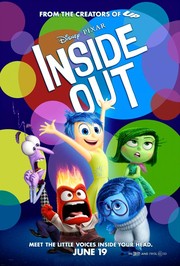
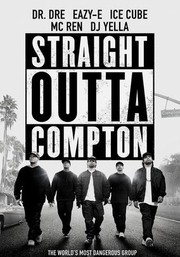

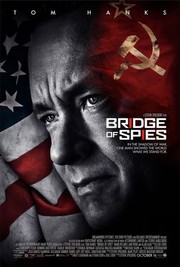


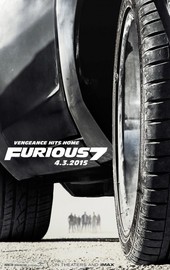
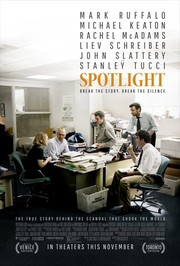
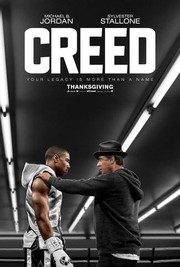
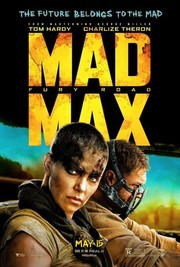

Leave a Reply
You must be logged in to post a comment.